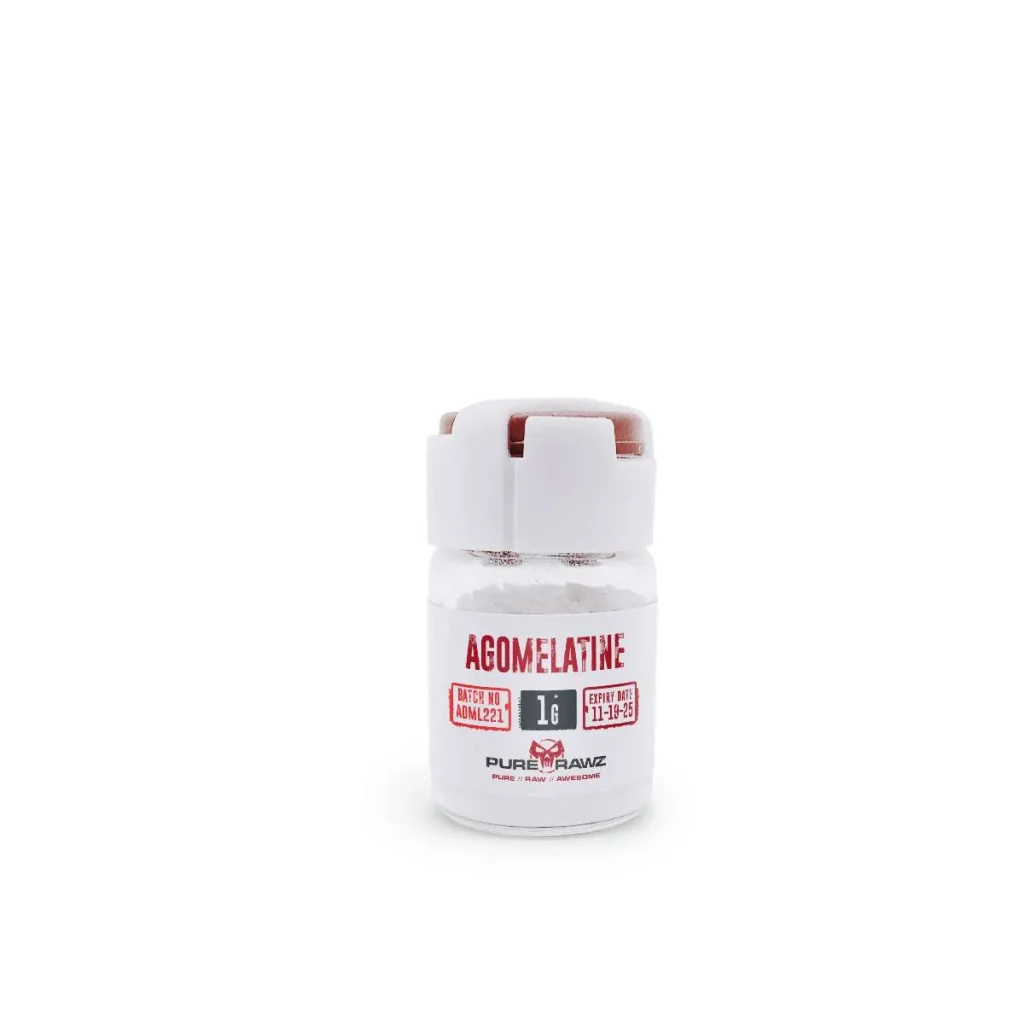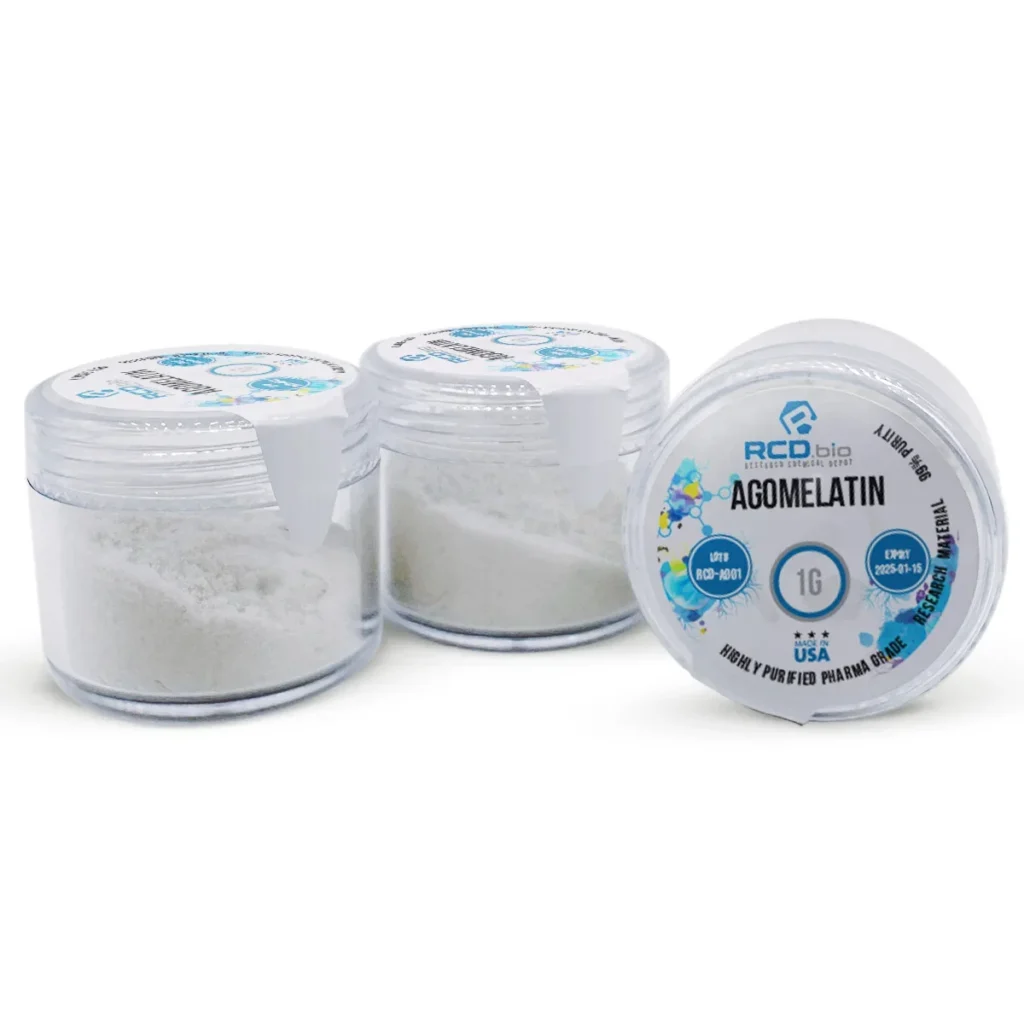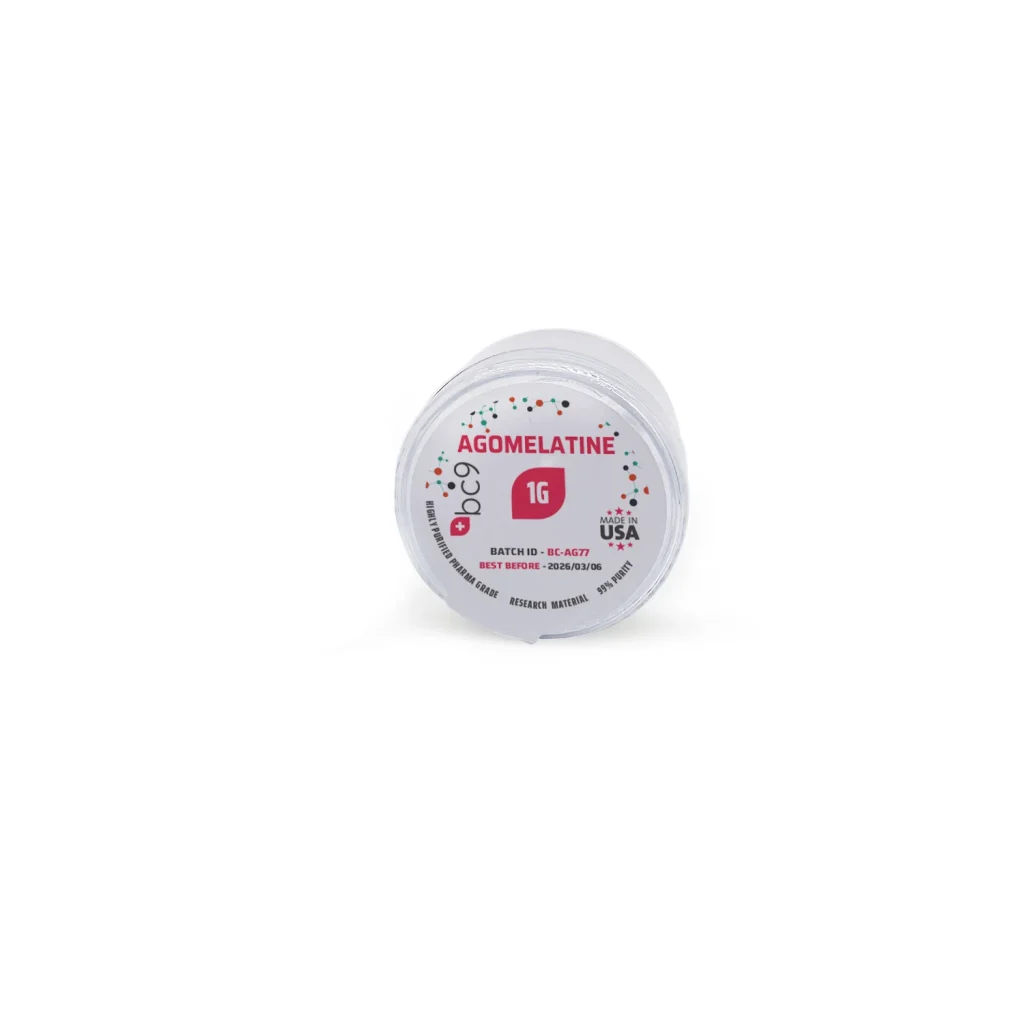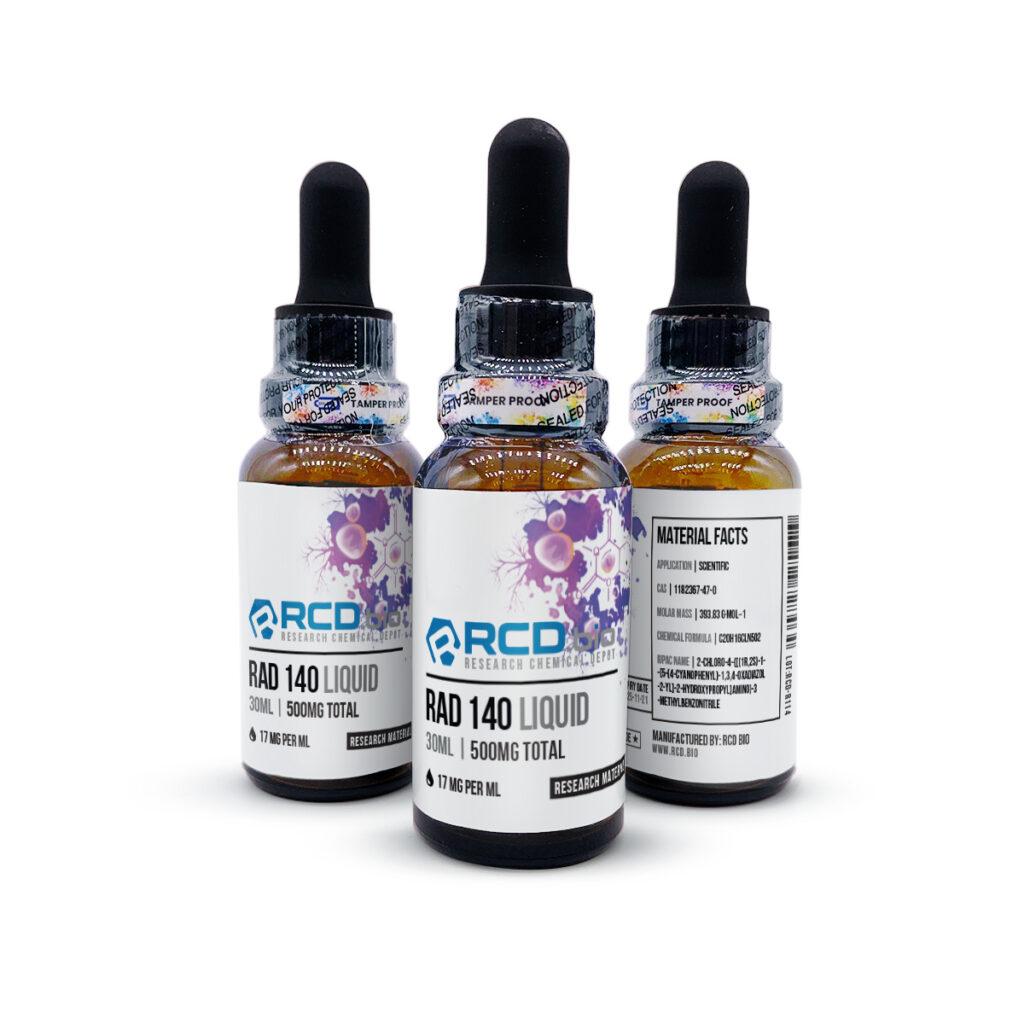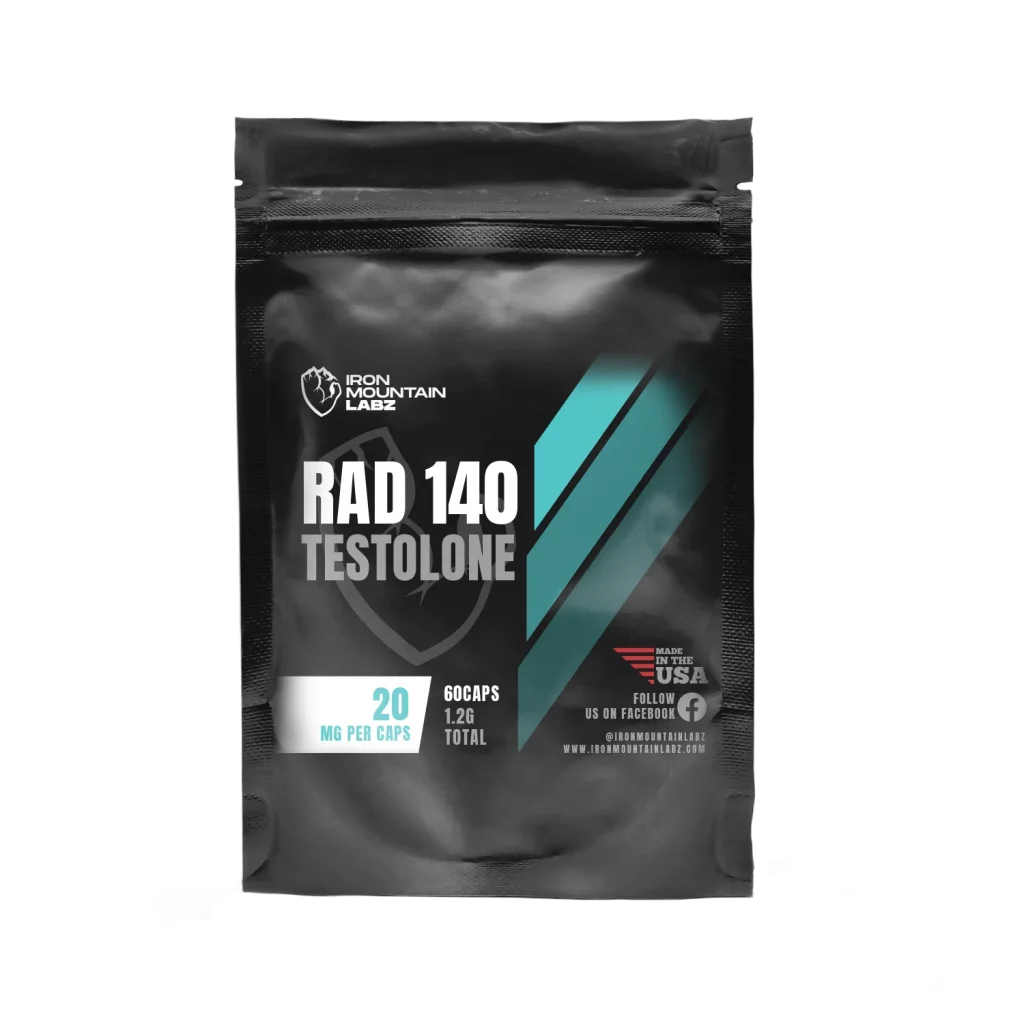Agomelatine is a prescription antidepressant that has also been studied for its effects on sleep regulation, mood, and cognitive function. This article explores how agomelatine works, its clinical uses, and potential effects on cognition. We’ll review current research on it’s effects on mood, sleep, and cognition.
How Agomelatine Works as a Nootropic
Agomelatine is an antidepressant that works by acting as a melatonin receptor agonist and a serotonin 5-HT2C antagonist. It helps regulate circadian rhythms, improve mood, enhance cognitive function, and promote neuroplasticity by acting as a melatonin receptor agonist and serotonin receptor antagonist. [R]
It influences serotonin and dopamine pathways, which may indirectly affect mood and cognitive performance in patients with depression. This dual action of regulating sleep-wake cycles while modulating mood and cognition makes it a promising nootropic for individuals seeking mental clarity, focus, and overall well-being.
Benefits of Using Agomelatine
Documented therapeutic benefits include:
Regulates Mood
One of the key advantages is its ability to regulate mood by balancing neurotransmitters in the brain, leading to improved emotional well-being and stress management. [R]
Enhances Sleep Quality
It has been shown to enhance sleep quality and regulate circadian rhythms, which can result in better concentration, focus, and overall cognitive performance. [R]
Treats Depression
It primarily functions as an antidepressant by targeting the underlying causes of depression. It works as an agonist at melatonin receptors and an antagonist at serotonin receptors. This dual action helps regulate mood and alleviate depressive symptoms, making it an effective treatment option for depression. [R]
Improves Cognitive Function
By alleviating depressive symptoms, it can indirectly enhance cognitive performance, including memory retention and problem-solving skills. [R]
Regulates Neuroplasticity
It may influence neuroplasticity in preclinical studies, but more human research is needed. [R]
Enhances Sexual Function
It generally has a more favorable sexual side effect profile compared to some other antidepressants. By improving mood and reducing the negative impact of depression on libido and sexual performance, it may indirectly enhance sexual function in individuals experiencing depression. [R]
Potential Side Effects
Agomelatine is generally well tolerated, but may cause headaches, dizziness, and gastrointestinal upset. In rare cases, it can cause liver injury, requiring regular monitoring.
Precautions
Contraindicated in patients with liver disease. Regular liver function tests are required before and during treatment. Consult with a healthcare professional before incorporating it into your regimen if you are pregnant, nursing, or have any underlying medical conditions. You can navigate it safely and effectively by being mindful of these precautions and listening to your body’s signals.
How to Incorporate Agomelatine into Your Routine
Agomelatine is prescribed by a healthcare professional, typically taken once daily at bedtime.
Find The Best Prices For Agomelatine
Conclusion
After delving into the intricacies of Agomelatine, it becomes clear that this natural supplement has great potential for enhancing cognitive function and overall well-being. With its unique mechanism of action and proven benefits, it emerges as a compelling option for those seeking to optimize their mental performance.
By using it, you are not just investing in cognitive enhancement but also in a holistic approach to mental health. The potential synergistic effects of this nootropic with other wellness practices can pave the way for a brighter, more focused future.
FAQs
What is the recommended dosage of Agomelatine as a nootropic supplement?
The usual prescribed dosage of agomelatine for depression is 25–50 mg once daily at bedtime, under medical supervision. However, it is crucial to consult a healthcare professional to determine the appropriate dosage based on individual needs and health conditions.
Is Agomelatine safe for long-term use?
It may be used long-term under medical supervision, but liver function must be regularly monitored.
How does agomelatine target the underlying causes of depression?
It’s mechanism of action involves modulating the serotonin and melatonin levels, neurotransmitters implicated in mood regulation. By rebalancing these neurotransmitter systems, it addresses the underlying neurochemical imbalances associated with depression.
Can agomelatine improve cognitive function in individuals with depression?
Yes, it has shown promise in improving cognitive function in individuals with depression. By alleviating depressive symptoms and regulating neurotransmitter systems involved in cognition, it indirectly enhances cognitive performance, including memory, attention, and executive function.
Is agomelatine safe to use as a nootropic?
Agomelatine is only approved as an antidepressant, not as a nootropic supplement.
How long does it take to see the effects of agomelatine on mood and cognition?
Mood improvements may be seen within 2–4 weeks. Cognitive changes, if present, are usually secondary to improved mood and sleep.









